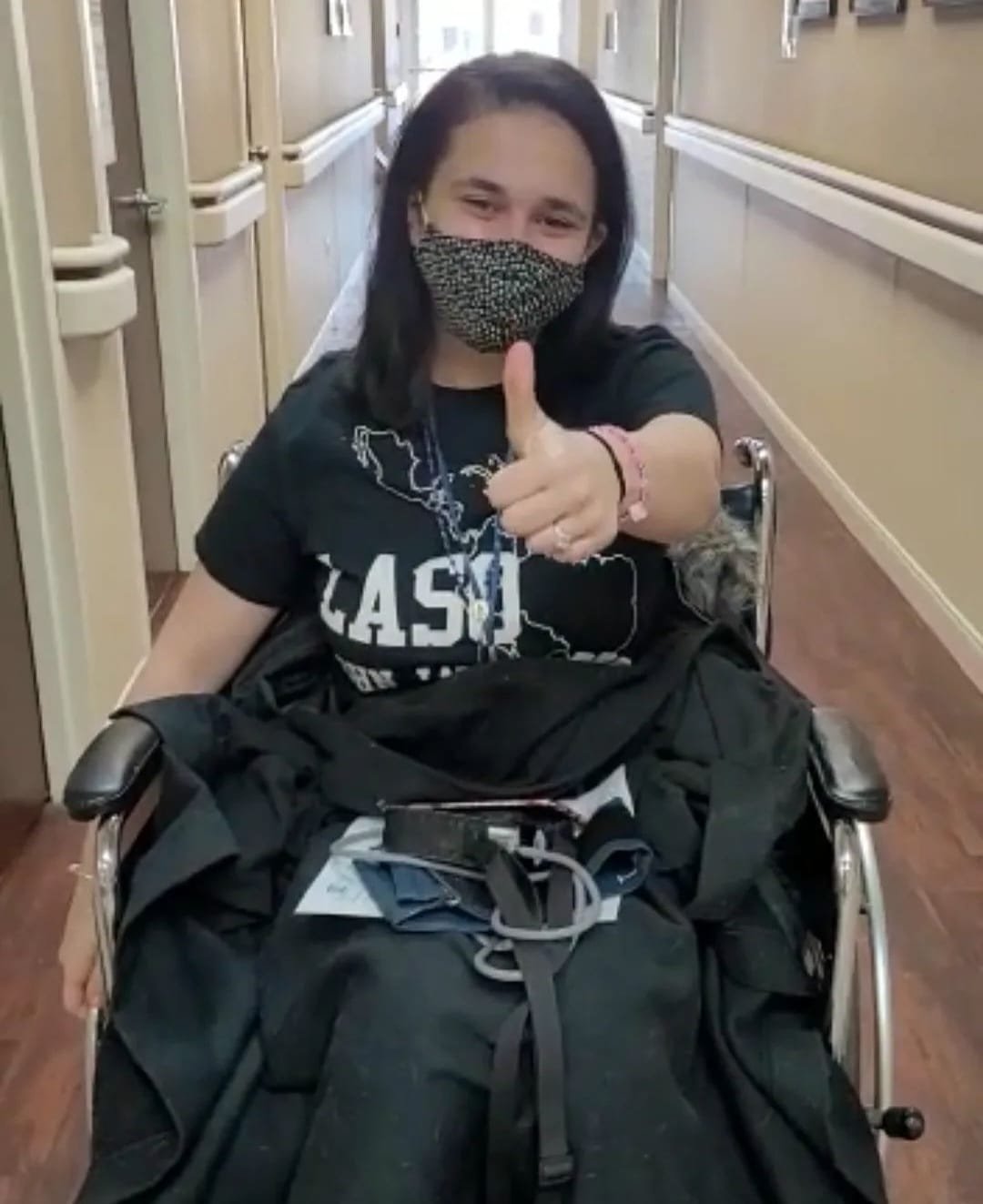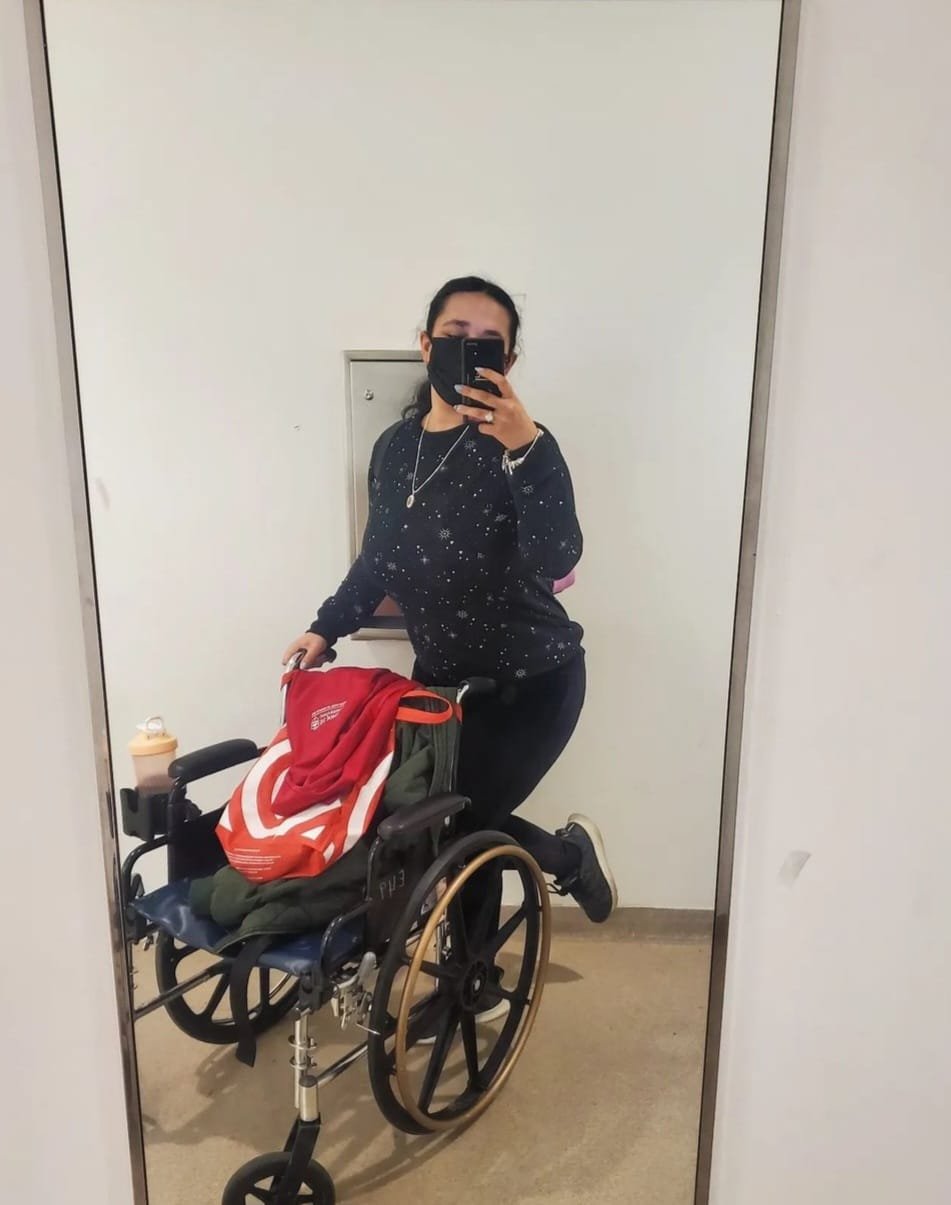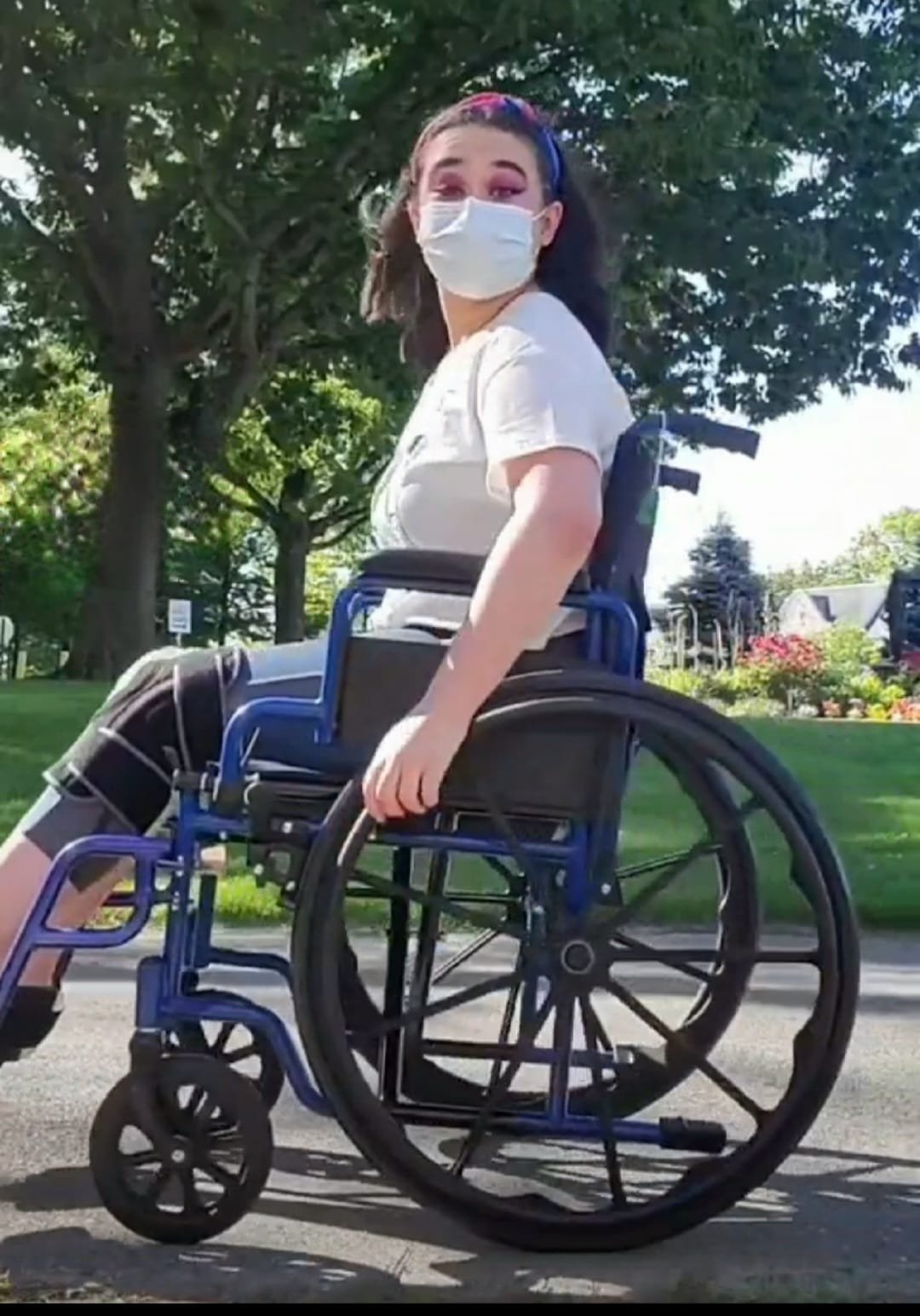Disability Pride Month
According to the Center for Disease Control and Prevention, approximately 1 in 4 adults in the United States have some type of disability. The term disability is an umbrella term that encompasses multiple types of disabilities. From disabilities affecting mobility such as paralysis or chronic pain, to learning disabilities, to invisible disabilities, this term encompasses them all. We seem to believe we understand this well, however, it’s not until we are personally affected by disability or have a disabled loved one that our eyes are opened to the inconsistencies and disadvantages.
I was a generally healthy individual for a majority of my life. I went for runs by myself, goal-oriented on my studies, and both ambitious and eager for my future. I had no physical health concerns at all, until March of 2021 when I fell ill with a range of physiological symptoms that could not be explained by any doctor. I spent countless nights plagued with anxiety, ruminating thoughts, and countless What Ifs. Everytime I would go to the doctor, I got told that these were psychosomatic symptoms and was diagnosed with an anxiety disorder. I was being told that every time I would stand up, my body would panic. I knew it didn’t make any sense as I was not in any emotional distress, yet everytime I would stand up, my world would get smaller, my head would become tight, and my heart started racing. In December of 2021 I received my first diagnosis of Postural Orthostatic Tachycardia Syndrome (POTS). A light bulb went off and I was told that my autonomic nervous system could no longer communicate properly with the rest of my body, making every subconscious function of my body (heart rate, blood pressure, breathing, etc) now a struggle for my body to perform. In January of 2022 I was diagnosed with Hypermobile Ehlers-Danlos Syndrome, a genetic connective tissue disorder that causes several comorbidities within the body, one of them being POTS. My life quickly changed and morphed into a daily game of “How accessible is the world today?” As I found myself unable to walk up stairs, using a wheelchair during flare ups, facing judgment from those I trusted, and dependent on the help of those around me to support me in daily activities.
I later found out that it takes a POTS patient approximately 7 years to get a proper diagnosis. This is due to Medical Gaslighting that occurs towards individuals with chronic pain and illness. Medical Gaslighting is defined as a behavior during which a provider dismisses an individual’s physical symptoms as a psychological condition without doing proper physical testing for their concerns. According to Dysautonomia International, approximately 60% of POTS patients were previously told by a medical professional that their syndromes were anxiety related. Imagine the anguish that individuals struggling with chronic pain and illness have to go through to advocate for themselves. It’s more important now than ever to educate ourselves on chronic illness and disability rights, as more and more people receive debilitating diagnoses due to Long Covid. When individuals come to medical or mental health professionals with somatic symptoms, it is imperative that we check for physical illness before dismissing the symptoms. Although the two are not mutually exclusive, and an individual can have both a disability and mental health concern, receiving the diagnosis and being able to present the person with a name for their symptoms is powerful and provides a sense of closure. In my case, I understood that I was facing medical gaslighting and continued to advocate for my testing and care, however my experience did cause mental anguish. I felt alone, as if no one could hear me screaming for help, all while being trapped in a body that was fighting against me with no clear reason why.
According to a 2017 study by the American Journal of Preventive Medicine, individuals with chronic illnesses are at a higher risk of suicide. Additionally, data from the 2021 Census for the United Kingdom revealed that disabled men are over three times more likely to commit suicide as compared to their able-bodied counterparts. Imagine living with a challenging and life altering diagnosis that impacts your daily life, you struggle with support from those around you, and the world you live in is built for those not like you. Your mental health would plummet, and you would feel unsupportive and hopeless. A recent study by the Centers for Disease Control and Prevention found that 17.4 million disabled individuals also face mental health challenges, including anxiety and depression. We must ask ourselves, are we truly supporting these individuals? Are we providing them a safe space to discuss their symptoms and concerns? We have to be willing to provide individuals for a safe space to grieve their health - yes grieving previous health is real - and encourage them to speak freely without the fear of getting gaslit or dismissed.
Next time you’re outside, check for a few small accommodations and count how many you find. Are there wheelchair accessible entrances with ramps and/or buttons? Bonus points if those buttons actually work. Next time you go to a supermarket or general store, do they have motorized carts for disabled individuals? Are they charged? These are just a few accommodations for individuals with disabilities impacting mobility that we (may) have available outside. If you’re a teacher or education professional, ask yourself if we, as a society, are doing enough for disabled students? Ezri Perrin, a reporter for CHS Globe Online, shared their own experience with being a chronically ill high school student and the major complexities that come alongside it. In their article entitled, Accommodations: We Aren’t Doing Enough, they reveal that 36% of students with any form of disability dropout of High School per year in the state of California, a whopping six times greater than the general population dropout rate. How can we better support these students, and make them feel not just supported, but wanted as well?
As you are reaching the end of this blog post, I ask you to reflect on your time reading. Did you learn something new? Were you unaware of the gaslighting and lack of accommodations for disabled individuals? If so, I encourage you to future educate yourself on disability rights and experiences. Take the time to hear the voices of those managing a chronic illness or disability. Recognize that disability has no specific look and encompasses many conditions. After all, if we are to properly support disabled individuals, we must understand their experiences and advocate for their rights.
Thank you.
References:
https://www.orlandohealth.com/content-hub/study-chronic-illness-may-increase-suicide-risk
http://www.dysautonomiainternational.org/page.php?ID=289
https://www.chsglobe.com/43627/commentary/accommodations-we-arent-doing-enough/




